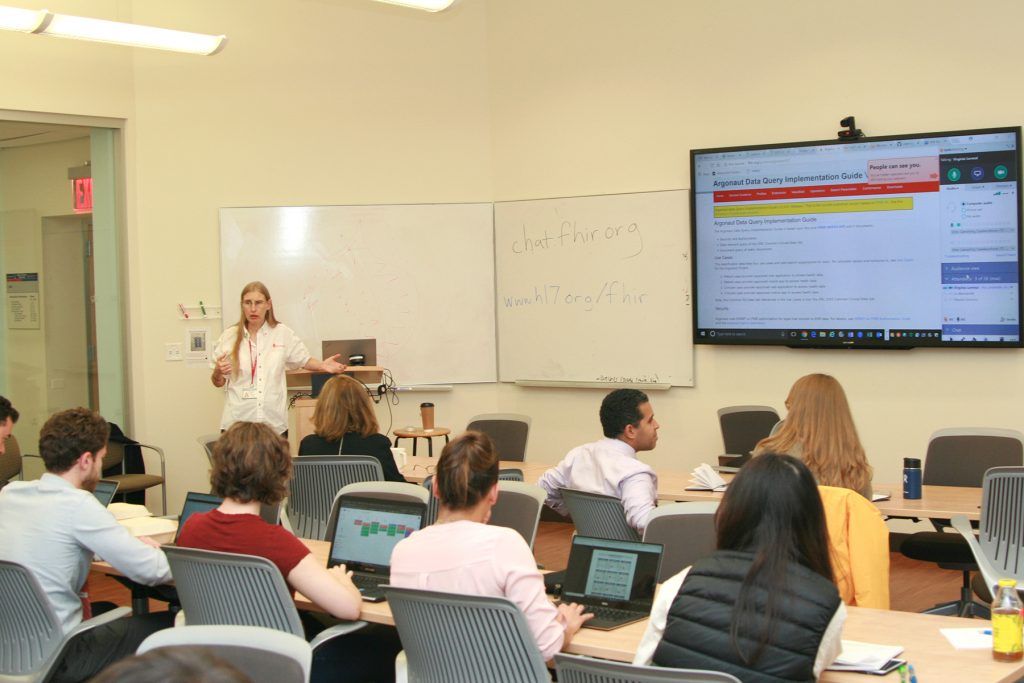DBMI Reading Groups
Healthcare Foundation Model Reading Group
The Healthcare Foundation Model reading group hosts in-depth discussions on cutting-edge foundation models for healthcare at Columbia DBMI. The goal of this group is to develop robust, powerful, and clinically meaningful foundation models for health data at Columbia. The reading group brings together students, research staff, faculty, and research engineers towards building transformative machine learning foundation models with clinical utility in mind.
HL7 FHIR Lab

DBMI faculty, students and staff are invited to join the HL7 FHIR (Fast Healthcare Interoperability Resources) Lab, which is designed to create a center of excellence around the use of the HL7 FHIR in our research and service. The mission of the FHIR Lab is to leverage the interoperability opportunities provided by the HL7 FHIR standard to improve patient-centered care, care coordination, and a learning health system. This Lab is intended to be a local collaborative community of learning and activism around this transformative technology for healthcare.
FHIR (Fast Healthcare Interoperability Resources) is an interoperability standard developed by HL7 (Health Level Seven), an international consensus-based standards development organization. FHIR is a powerful interoperability tool for informatics. It provides the promise of a modern way of freeing information for innovation by using modern web technologies such that applications can be deployed that are not tied to a specific large health IT vendor, provider, or payer.
Current use cases in the FHIR Lab include communication about breast cancer risk, depression screening and management, dementia functional staging via mobile app, HIV management including self-management, the CONCERN project for real-time detection of patient decompensation in the ICU, embedded EHR Clinical Decision Support to support EMerge, and more.
The lab is open to students, faculty, and staff at Columbia, Weill Cornell, and NewYork-Presbyterian with a common interest in FHIR.
The FHIR Lab is led by Virginia Lorenzi, Dr. Suzanne Bakken, and Mark Israel, who share a similar passion for the potential of standards to create a more interoperable healthcare system.
Collaboration in the FHIR Lab takes place one Thursday each month (2 pm ET) over Zoom. The FHIR lab is open to all students, faculty and staff at Columbia, Cornell, and NYP. To receive the Zoom invite or to learn more, please contact Virginia Lorenzi at vl98@cumc.columbia.edu.
